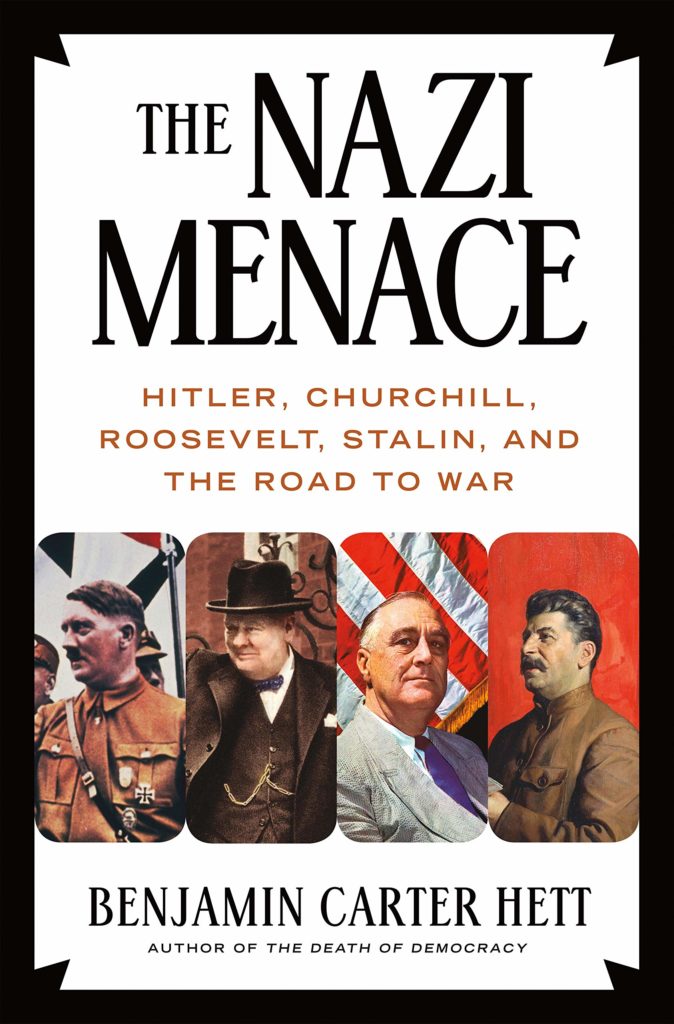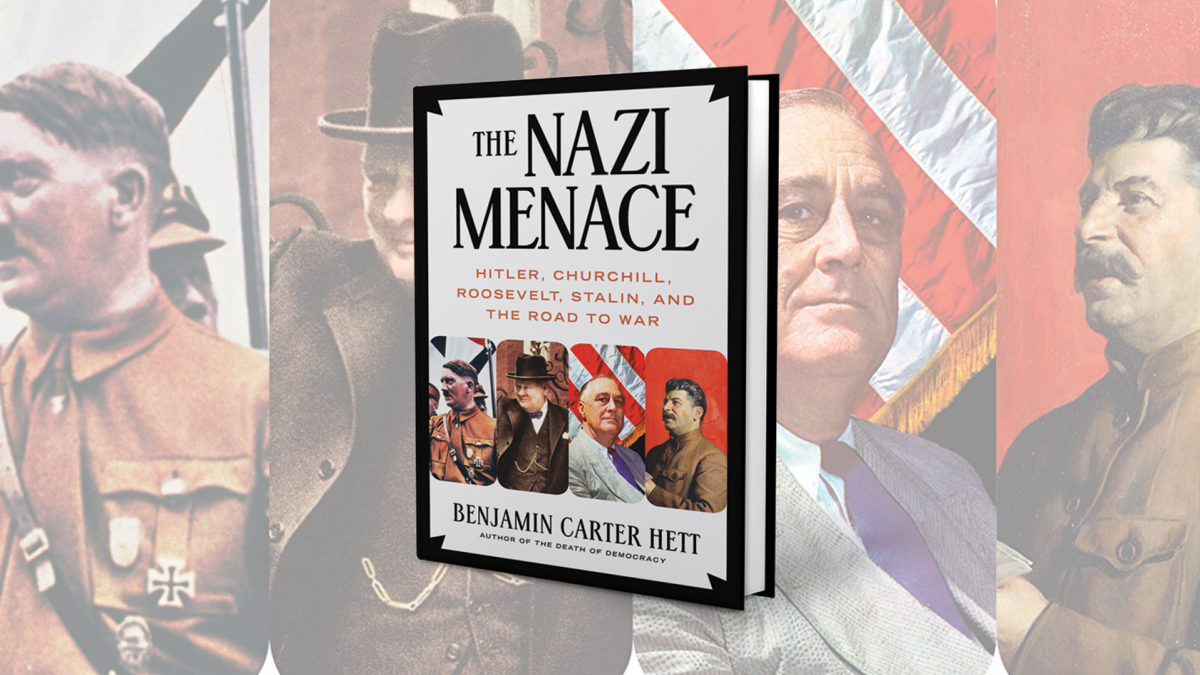Harvard-educated history professor Benjamin Hett has examined the challenges to interwar democracy before. His latest work, with the inclusion of German and Russian sources, makes this study into the buildup to World War II a more balanced approach than most. Describing the traumatic events of the 1930s as more unpredictable than first realized, the author seeks to draw parallels to pressures facing democracies worldwide in the 21st century.
Feeding the interwar crisis were lingering human and material costs from World War I, the economic devastation of the Great Depression and high expectations from hugely expanded electorates. In Germany Adolf Hitler’s Nazis emerged as advocates of both a closed-off economy (autarky) and an expansionist Lebensraum (“living space”) in Russia. Under Joseph Stalin’s iron fist Soviet Russia was a paranoid police state hostile to both Germany and the Western Allies. Under Neville Chamberlain Britain vainly led efforts to preserve the peace and contain the expansionist powers, including fascist Italy and imperial Japan. Hett notes that while Hitler was able to exploit Chamberlain’s desire for peace, the prime minister nevertheless wisely rearmed Britain. The resulting introduction of the Supermarine Spitfire fighter plane and radar technology in particular enabled Britain to resist Hitler’s strong-arm tactics.
The author’s unsung heroes are German officers Helmuth Groscurth, Hans Oster, Werner von Fritsch, Werner von Blomberg and Johannes Blaskowitz, among those who bravely, if unsuccessfully, resisted Hitler. Contrary to other contemporary academics, Hett argues for Winston Churchill and Franklin Roosevelt as the most familiar and deserving protagonists. While confronting totalitarianism, they defended democratic ideals, as outlined by the British prime minister in the 1941 Atlantic Charter. “Churchill demonstrated beyond any doubt his profound understanding of world affairs, his fully intact moral compass and, with all this, his powerful claim on leadership,” Hett writes. His thought-provoking book includes a glossary of international wartime figures, period photographs (many from the German Bundesarchiv) and extensive endnotes, though it lacks a bibliography.

The Nazi Menace
Hitler, Churchill, Roosevelt, Stalin and the Road to War
By Benjamin Carter Hett, Henry Holt & Co., 2020
If you buy something through our site, we might earn a commission.
This review appeared in the Winter 2023 issue of Military History magazine.





